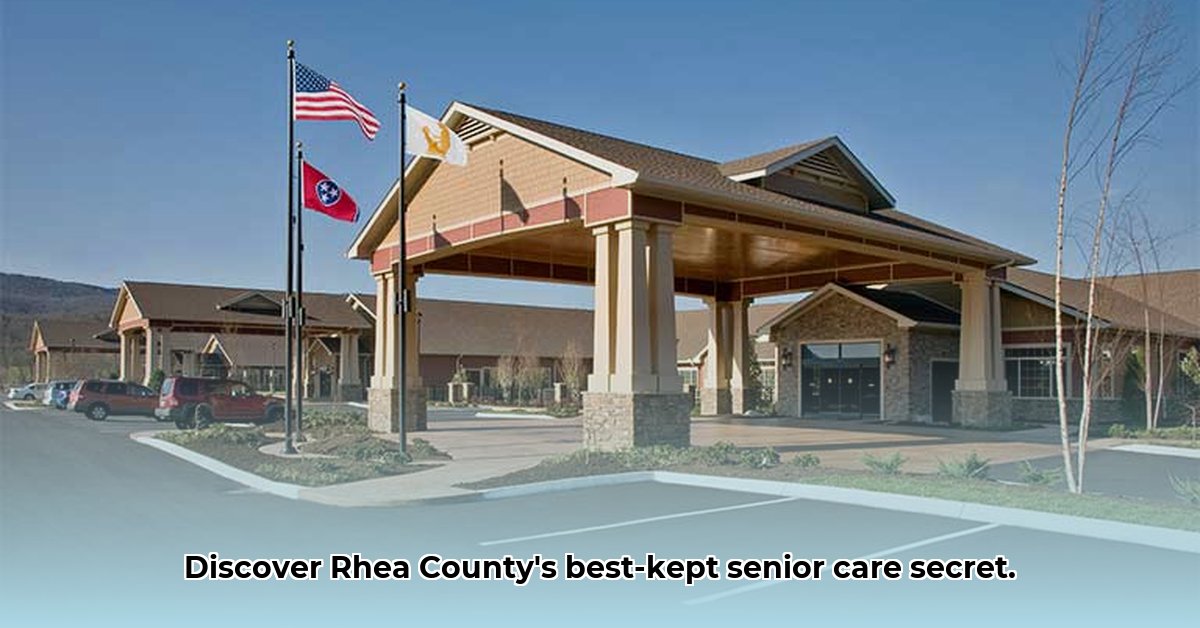
Life Care Center of Rhea County TN: A Comprehensive Overview
Choosing the right senior care facility is a deeply personal and often challenging decision. Life Care Center of Rhea County, TN, presents itself as a comprehensive solution, offering a “continuum of care” encompassing assisted living and skilled nursing services. But how does it stack up against competitors, and what are the key factors families should consider? This article provides an in-depth analysis, blending factual data with real-world perspectives to help you make an informed choice. For more options, consider exploring other facilities like this example assisted living facility.
This facility's stated goal is to provide seamless transitions as residents' needs change, avoiding the stress of relocating. While this is a highly desirable feature, the practical implementation requires careful evaluation. How smoothly does this transition actually work? What are the real-world experiences of residents and families? These questions are central to our review.
The center boasts state-of-the-art equipment and 24/7 skilled nursing. Its proximity to Rhea Medical Center is a significant advantage, ensuring quick access to emergency care. However, a truly comprehensive assessment demands a comparative analysis of competing facilities. What aspects differentiate Life Care Center, and what areas could benefit from improvement?
Navigating the Competitive Landscape and Regulatory Compliance
To effectively evaluate Life Care Center, we need to understand its position within the Rhea County senior care market. Key metrics are occupancy rates, average resident length of stay, and staff turnover. These factors, combined with resident satisfaction surveys, provide a robust picture of the facility's operational efficiency and overall success. Is the center consistently full, or is there significant bed availability? These details are crucial factors for prospective residents and their families.
The dynamic regulatory landscape of healthcare significantly impacts senior care facilities. Changes to Medicare and Medicaid reimbursement, evolving staffing regulations, and future legislative changes are all continual challenges. Understanding how Life Care Center addresses these regulatory hurdles is vital in assessing its long-term viability and the consistency of its care delivery.
Resident Experiences and Staff Dedication: The Human Element
While data provides a valuable framework, the true measure of a senior care facility lies in the human experience. We need to understand the daily lives of residents and staff. What are their stories? Do residents feel respected and valued? Is the staff attentive and responsive to their needs? Direct feedback from residents, families, and staff members paints a far richer picture than any numerical data.
The Life Care Center's partnership with The Veranda at Rhea County, offering assisted living services, is a central element of its continuum-of-care model. However, a key question is how seamless this integration truly is for residents and their families. Ideally, transitions between care levels should be effortless, minimizing disruption and anxiety.
Areas for Growth and Improvement: A Path Toward Excellence
To further enhance its already considerable services, Life Care Center could benefit from several focused improvements:
Comprehensive Market Research: A detailed competitive analysis will pinpoint the facility’s unique selling propositions and areas requiring attention. This research should inform strategic planning for long-term success. Such data-driven decisions will optimize resource allocation and service delivery.
Enhanced Communication Strategies: Proactive and transparent communication is paramount. Clear, concise explanations of the care model should be readily accessible to potential residents and their families. Marketing should emphasize the benefits of the integrated continuum-of-care approach, highlighting the advantages of remaining in a single location as care needs evolve.
Strategic Staff Investment: Attracting and retaining highly skilled, compassionate staff is essential. Investing in competitive compensation, comprehensive training programs, and professional development opportunities will significantly improve the quality of resident care.
Proactive Regulatory Compliance: Staying ahead of regulatory changes is crucial. Active engagement with relevant bodies ensures the facility consistently meets or exceeds compliance standards, upholding its commitment to quality care.
Transparent Feedback Mechanisms: Implementing robust systems for collecting and acting on resident and family feedback creates a culture of continuous improvement. Regular surveys and open forums for communication foster trust and improve the overall resident experience.
Choosing the Right Assisted Living Facility: A Practical Guide
Selecting an assisted living facility is a major decision. This section provides a step-by-step guide to help navigate the process in Rhea County, TN.
Key Considerations:
- Rhea County's senior care landscape is diverse, with varying levels of quality across different facilities.
- Assisted living facilities generally receive higher resident satisfaction scores than nursing homes.
- Medication management and responsiveness to resident needs are crucial areas to evaluate.
- Thorough research is paramount; don't solely rely on advertising materials.
Steps to Take:
- Begin your research early: Don't wait until a crisis necessitates a quick decision. Start exploring options well in advance.
- Develop a detailed checklist: Consider factors relevant to your loved one's needs and your family's preferences: location, amenities, specialized care requirements, and financial aspects.
- Conduct in-person site visits: Observe the environment, speak with staff (if possible), and gain a firsthand impression of the daily operations.
- Review regulatory ratings: Consult resources like the Centers for Medicare & Medicaid Services (CMS) for insights into quality of care and any reported deficiencies.
- Compare multiple facilities: Don't settle for the first option. Carefully compare the pros and cons of several facilities before making a commitment.
- Ask probing questions: Don't hesitate to seek clarification on critical areas such as medication management, emergency response protocols, staff training, and overall resident satisfaction.
- Trust your intuition: If any aspect feels off, explore other options. Making an informed decision is paramount.
Choosing the best assisted living facility is a deeply personal process. This guide provides a framework for your search. Prioritize your loved one's well-being and needs throughout the decision-making process.